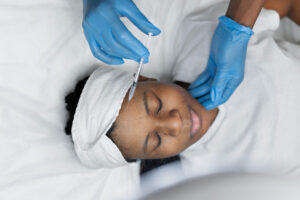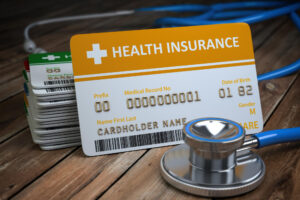A skin abscess is a pocket of pus that forms under the skin. It is caused by a bacterial infection. Skin abscesses can occur anywhere on the body, but they are most common in areas where the skin is broken, such as in cuts, scrapes, or insect bites.
Causes of Skin Abscesses
Skin abscesses are caused by bacteria that enter the skin through a break in the skin. These bacteria can come from dirt, oil, sweat, or even from your own skin. Once the bacteria enter the skin, they can start to multiply and cause an infection.
Some of the factors that can increase your risk of developing a skin abscess include:
- Having a weakened immune system: People with a weakened immune system, such as those with diabetes or HIV/AIDS, are more likely to develop skin abscesses.
- Having a skin condition: People with skin conditions, such as eczema or psoriasis, are more likely to develop skin abscesses.
- Being overweight or obese: People who are overweight or obese are more likely to develop skin abscesses.
- Having a poor diet: People who have a poor diet are more likely to develop skin abscesses.
- Smoking: Smoking can damage your immune system and make you more likely to develop skin abscesses.
Symptoms of Skin Abscesses
The symptoms of a skin abscess can vary depending on the size and location of the abscess. However, some common symptoms of skin abscesses include:
- Redness: The skin around the abscess will be red and swollen.
- Pain: The abscess will be painful, especially when touched.
- Heat: The area around the abscess will feel warm to the touch.
- Swelling: The area around the abscess will be swollen.
- Tenderness: The area around the abscess will be tender to the touch.
- Fever: You may have a fever if the abscess is large or infected.
- Pus: The abscess may drain pus.
Treatment for Skin Abscesses
Small skin abscesses may go away on their own without treatment. However, larger abscesses or abscesses that are causing pain or discomfort should be treated by a licensed independent practitioner.
The treatment for a skin abscess will depend on the size and location of the abscess. Small abscesses may be treated with antibiotics and warm compresses. Larger abscesses may need to be drained by a licensed independent practitioner. In some cases, surgery may be necessary to remove the abscess.
Prevention of Skin Abscesses
There are a few things you can do to help prevent skin abscesses, including:
- Wash your hands frequently: Washing your hands with soap and water for at least 20 seconds can help to remove bacteria from your hands and prevent them from entering your skin.
- Keep your skin clean and dry: Keeping your skin clean and dry can help to prevent bacteria from entering your skin.
- Avoid picking at cuts, scrapes, or insect bites: Picking at cuts, scrapes, or insect bites can make them worse and increase your risk of developing a skin abscess.
- Cover cuts and scrapes with a bandage: Covering cuts and scrapes with a bandage can help to keep them clean and prevent bacteria from entering your skin.
- Get vaccinated against tetanus: Tetanus is a serious infection that can be caused by bacteria that enter the skin through a cut or scrape. Getting vaccinated against tetanus can help to protect you from this infection.
If you have any concerns about skin abscesses, please see a licensed independent practitioner.





